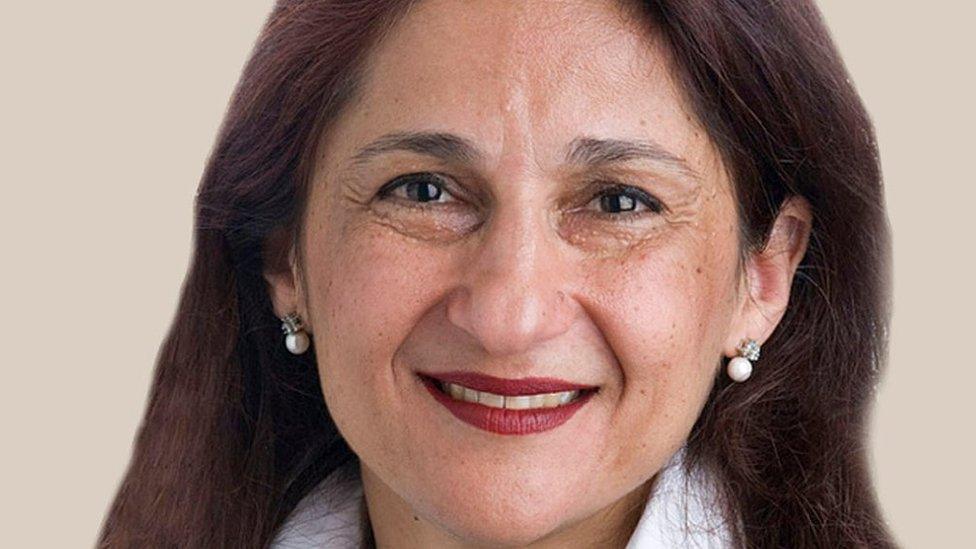Interest rates 'not tool for housing market'
- Published

Raising interest rates to deal with housing market problems would hit the rest of the economy too hard, Bank of England deputy governor Dame Nemat (Minouche) Shafik has told the BBC.
"We should use other tools, and fortunately we have other tools," she told Radio 5 live's Wake Up to Money.
On Thursday, the Bank's inflation report prompted economists to postpone when they expect UK rates to rise.
She also said the Bank could cut interest rates even lower, if needed.
Dame Nemat pointed to research carried out at the Bank, suggesting that if it had raised interest rates by two percentage points before the financial crisis, it would have reduced household debt by 2%, but cut economic growth by 2.6%.
She said this analysis supported the use of other tools to control the housing market.
"We have an FPC [Financial Policy Committee], which works alongside the MPC [Monetary Policy Committee]. It has tools to do things like put limits on the amount of indebtedness that households can take on, it can reduce banks' ability to lend very risky loans, so for us we need to use the right tools for the right problem."
Asked about household debt levels, she said they were still high, but had come down a lot as a share of income.
"It used to be about 155% at the time of the crisis, and it's come down to 135%. It's plateaued recently, but we do think it has improved."
Lower?
On Thursday, the Monetary Policy Committee (MPC), on which Dame Nemat sits, voted 8-1 to keep interest rates unchanged at 0.5%, where they have been for six and a half years.
Dame Nemat told the BBC: "Just last month, we looked at this again and we said that actually we do have room to lower interest rates if we had to and we could do more quantitative easing if we had to and in fact the governor's letter to the chancellor this month explains precisely that.
"But the fact of the matter is: at the moment we don't need any more ammo, because the economy is growing above trend. But what we have said is that we have it there if we need it."
"My children... tease me relentlessly: you meet all the time, you work so hard, you read all those papers, you look at all that data and then you decide to do nothing," she said.
"My response to that is every month we meet we pore over the data and we argue and we analyse and it's a big decision and we make that decision with huge amounts of care and thoughtfulness and making a decision to keep rates steady is just as difficult a decision to raise or lower rates."
- Published5 November 2015

- Published5 November 2015